the seeds float away - - - soft turns at the Boarding House Gallery, Guelph
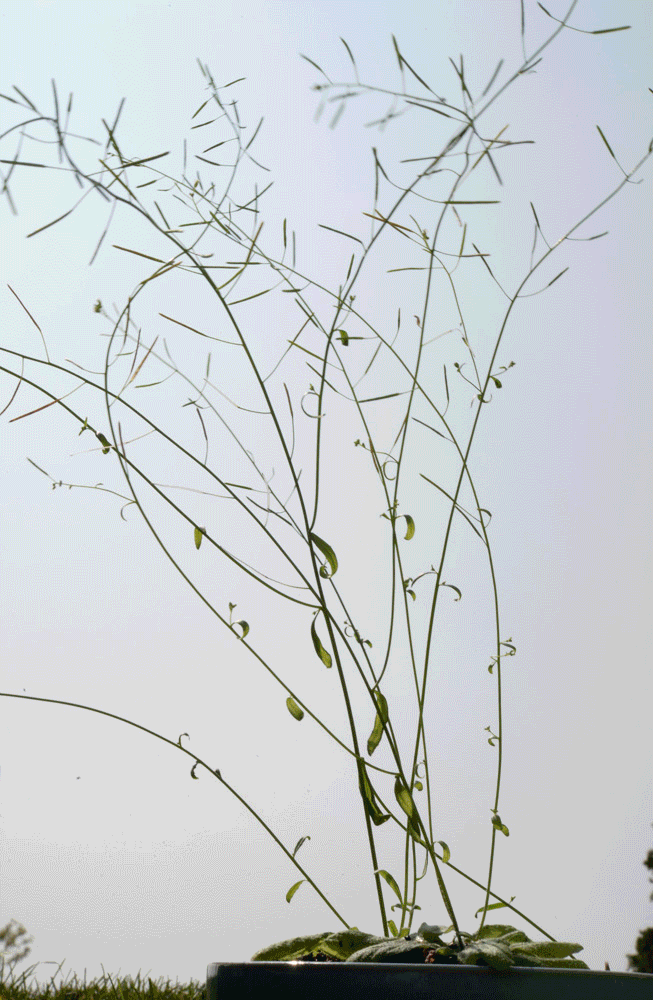
arabidopsis gif (gif, 2020) This gif deploys a ‘digital mould’ photoshop glitch, the result of minutely resizing an image hundreds of times, forcing the loss and reconfiguration of information. The host plant is a nondescript common weed named Arabidopsis Thaliana. This 'lab rat' of experimental plant research was the first to have its genome sequenced and coincidentally also the first to complete a full life cycle in space.
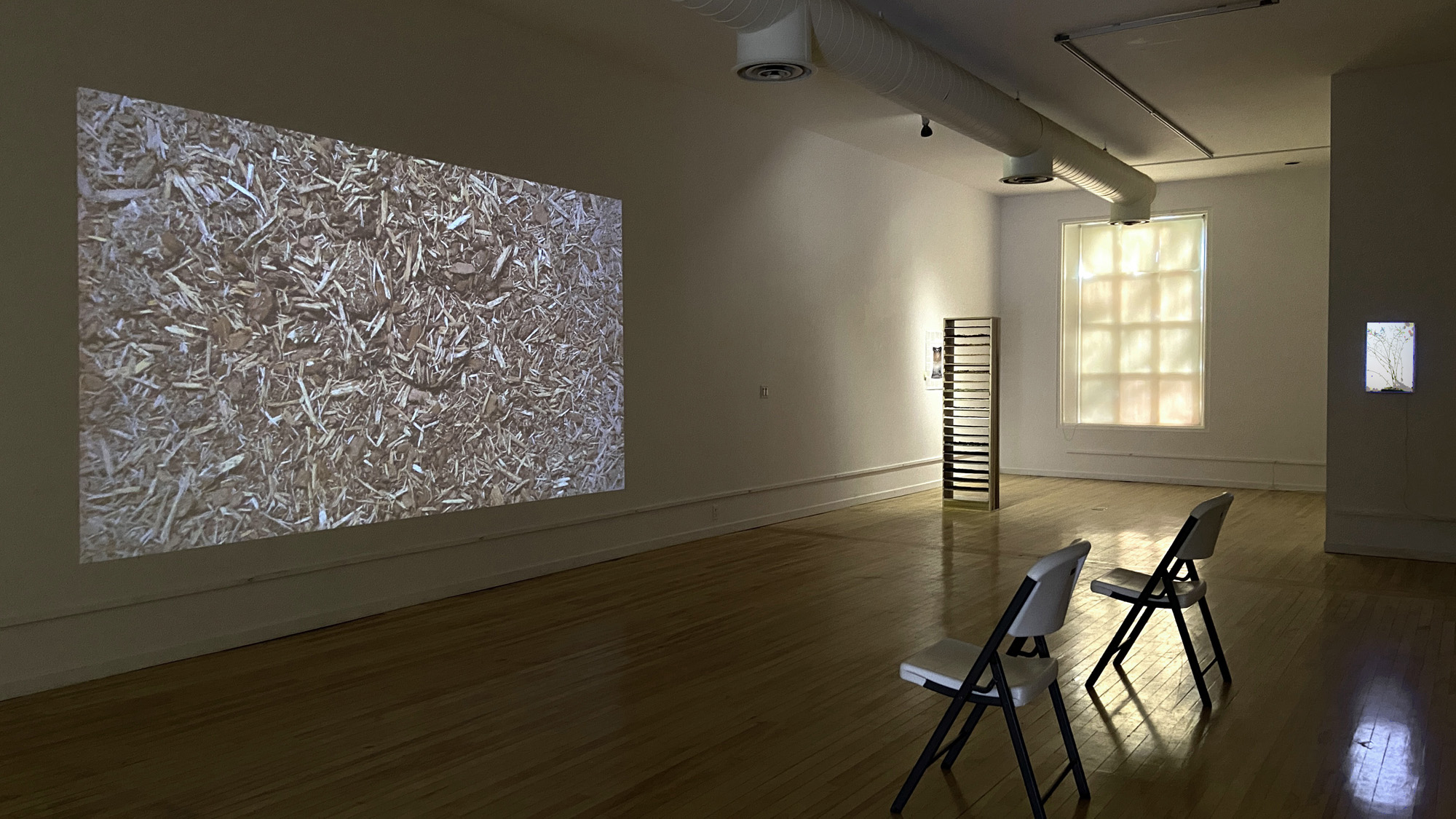
the seeds float away (install image)
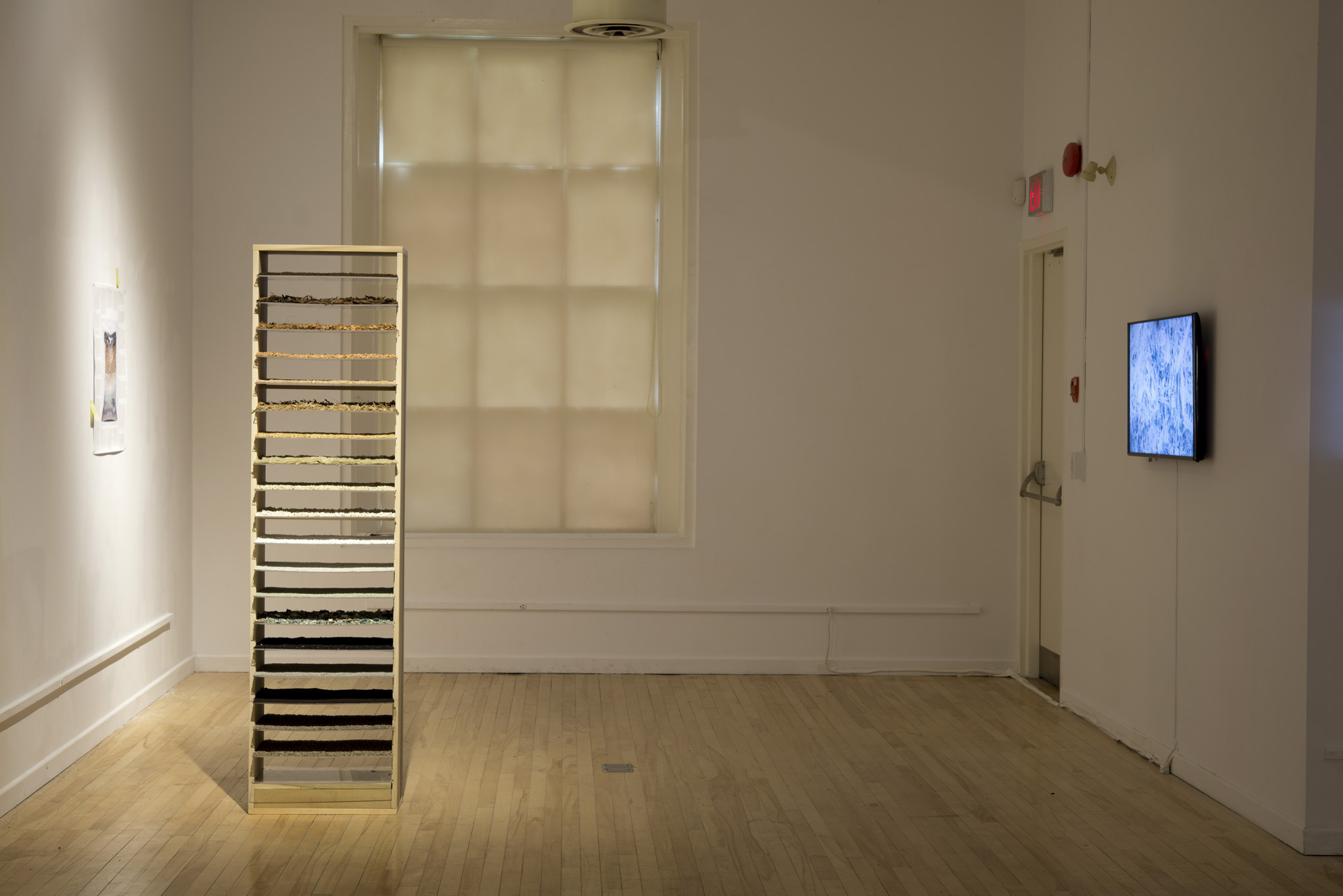
the seeds float away (install image)
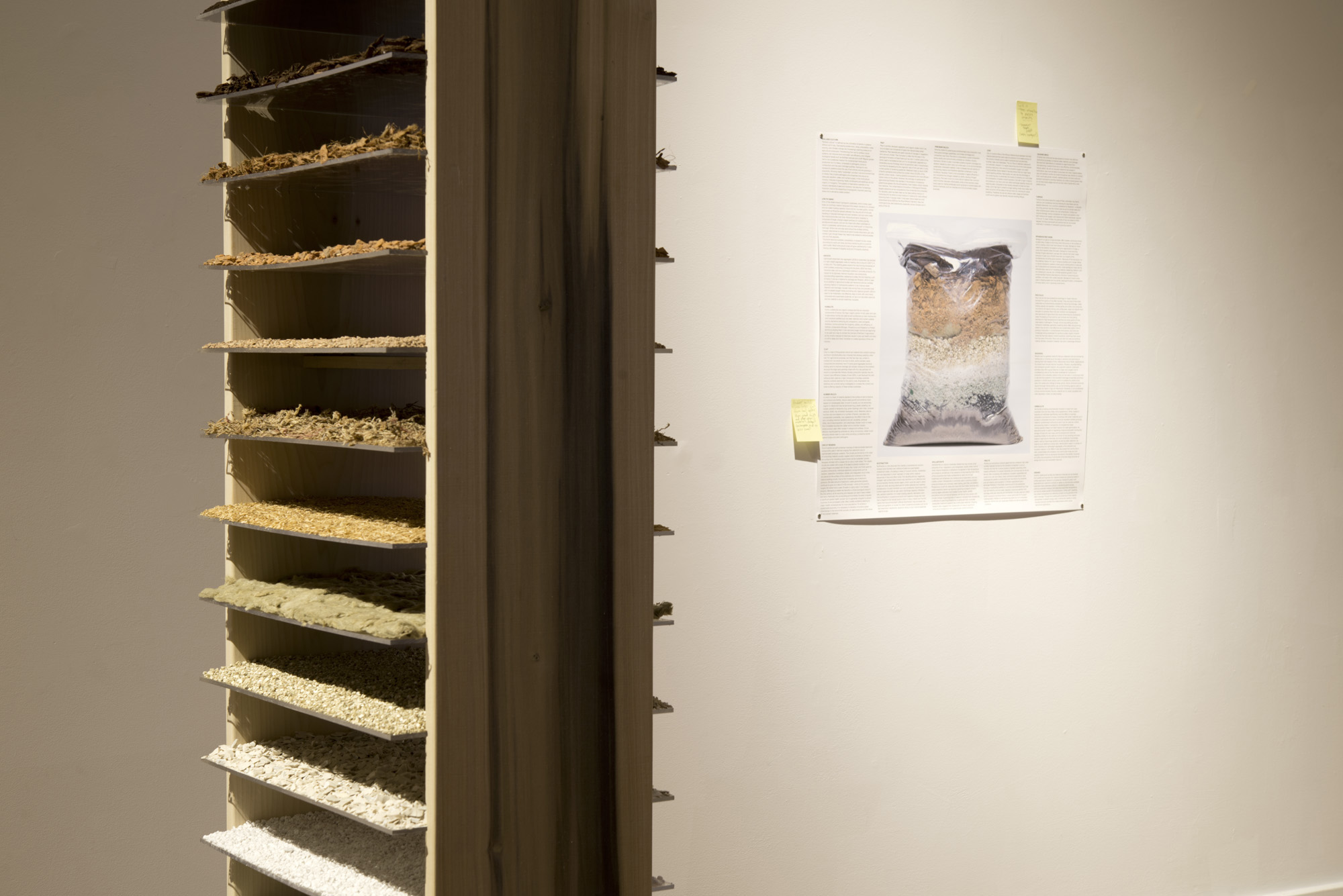
soilless culture (sculptural installation, 2020) 19 soilless substrates (peat, pine bark, coir, crushed brick, Turface, sphagnum moss, rice hulls, rockwool, vermiculite, ceramic, perlite, wollastonite, Ecotraction, computer parts, rubber mulch, clay, humalite, haydite, low ph sand), acrylic, poplar.
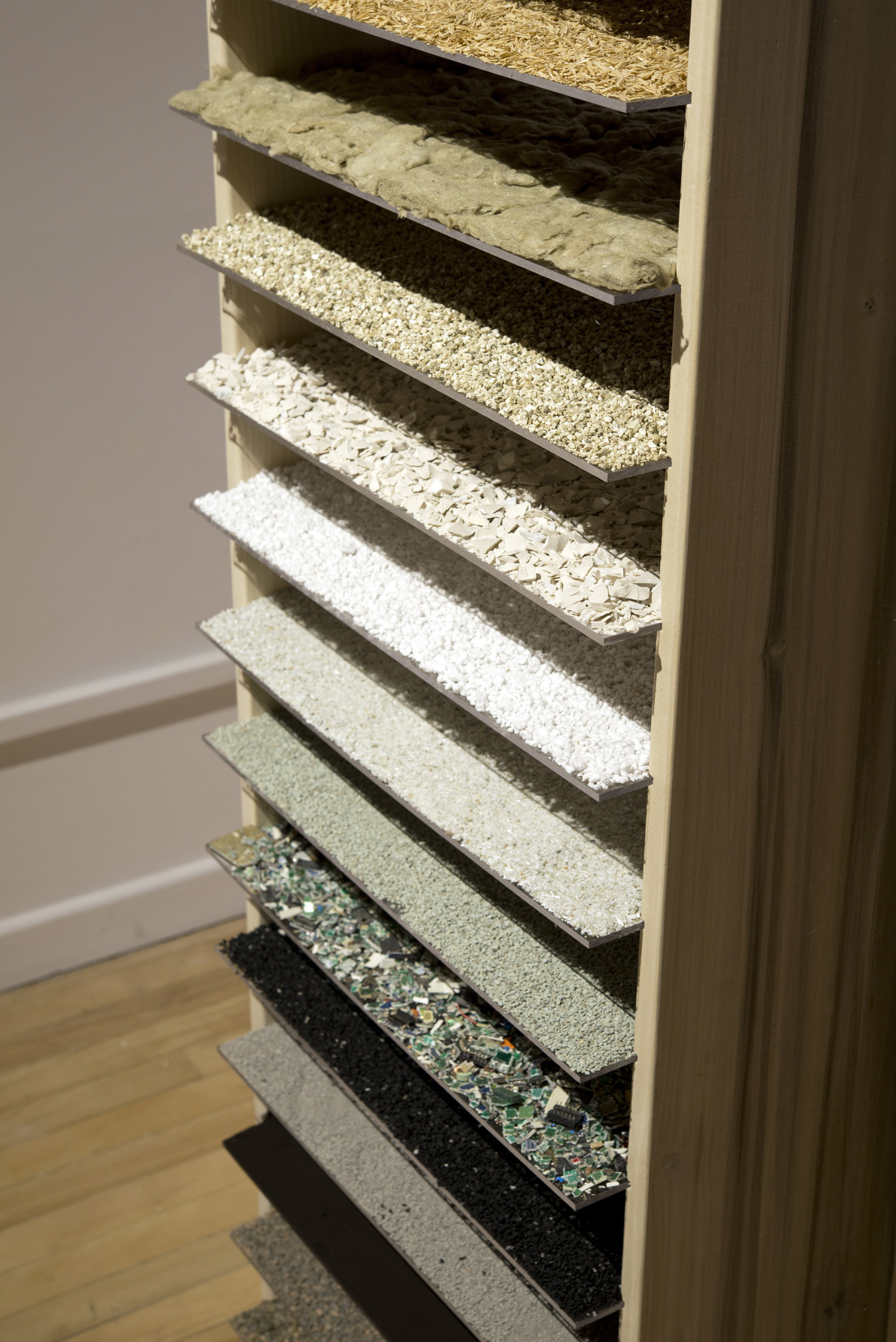
soilless culture (detail)
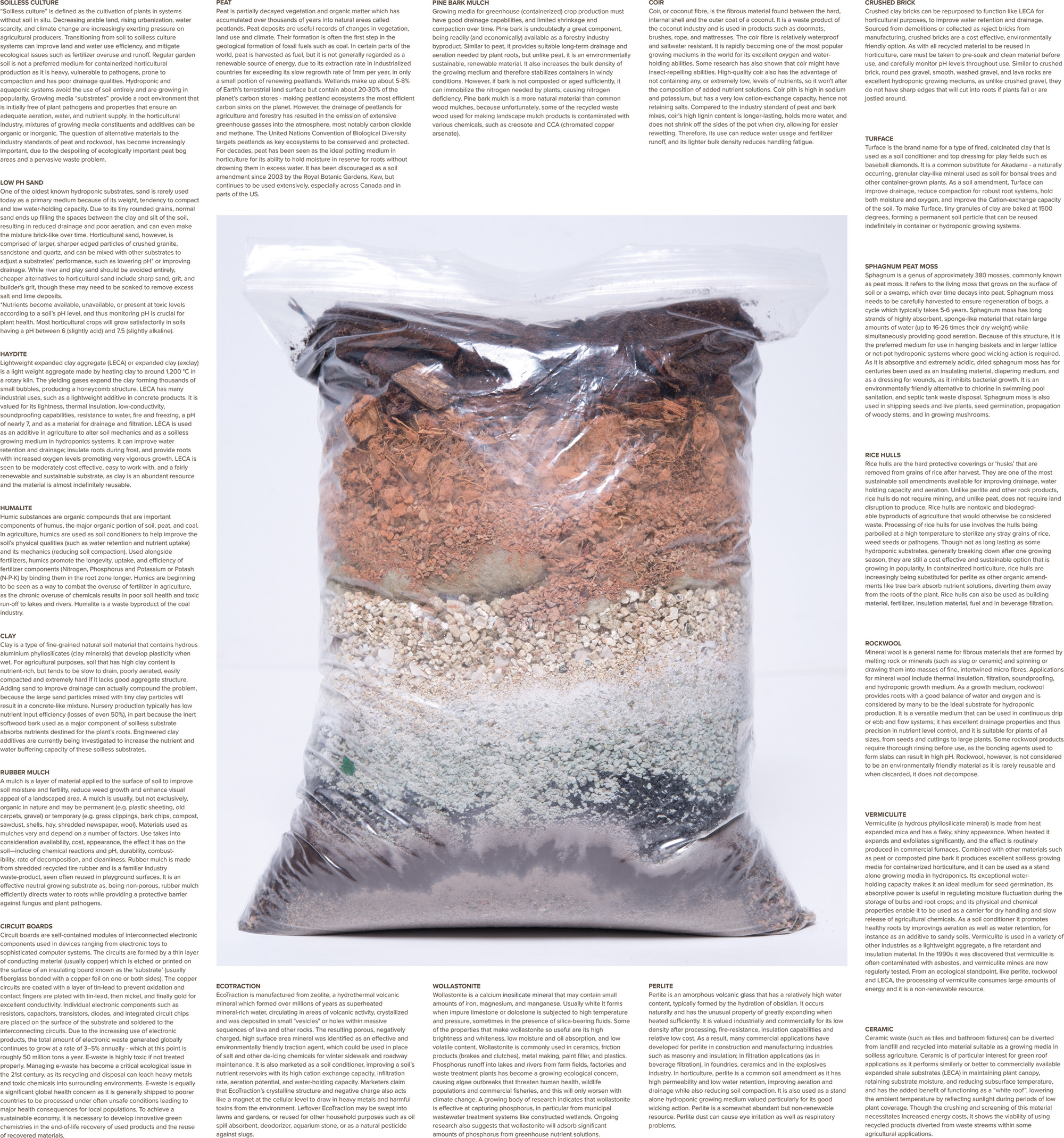
soilless culture poster
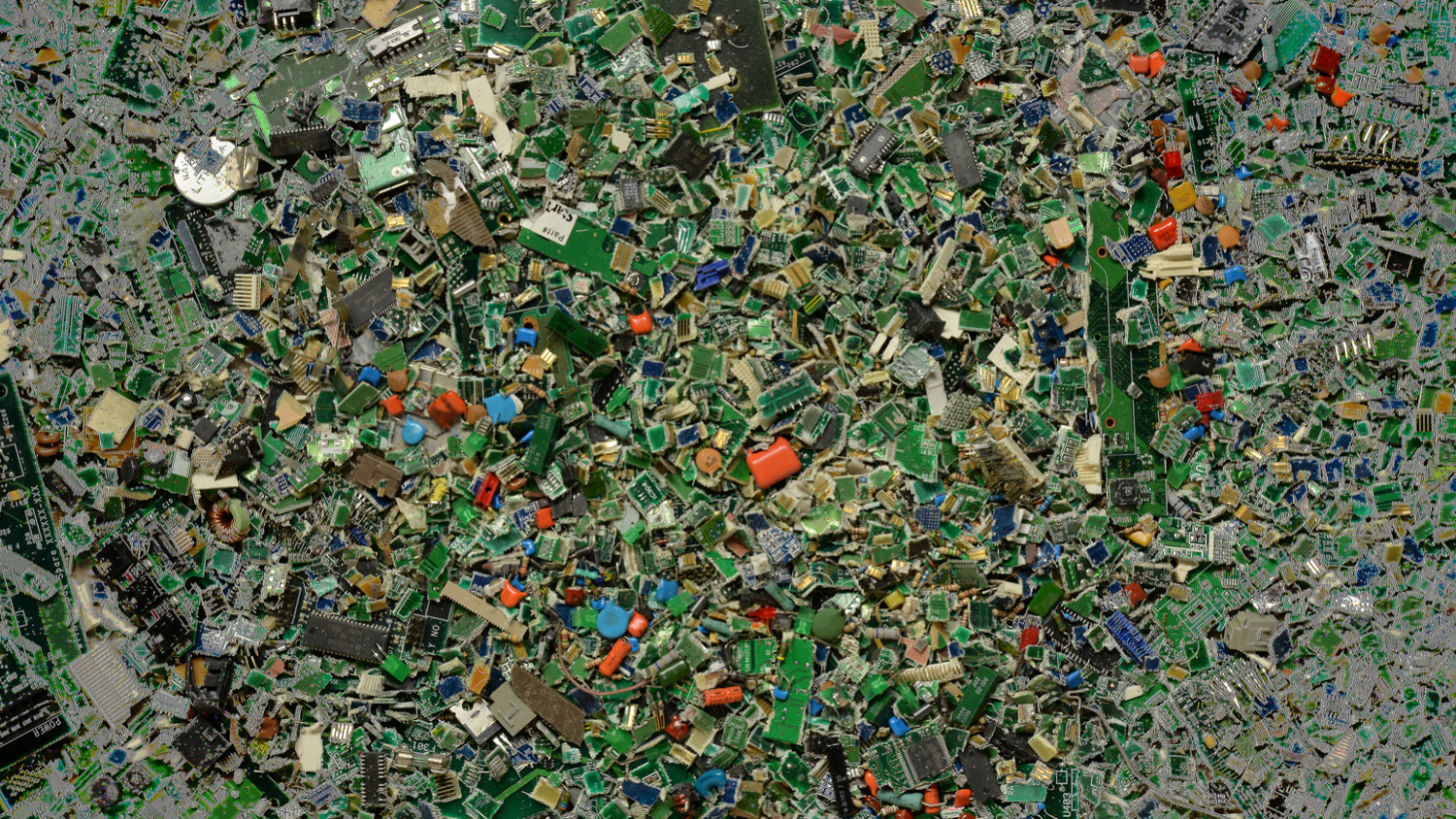
space mould (still) Emerging from our research into space-agriculture, this animation imagines a digital contamination of non-soil substrates. While a voice recounts a cosmonaut’s experiences of gardening in space, cascading virus-like distortions grow in the image after contact with the lens (the result of a Photoshop resizing glitch).
space mould (stop-motion animation, 2018)
ematerial (stop-motion animation, 2019) This series of videos considers ideas around material and immaterial waste, making materially visible the toxic consequences of the digital industry.
the seeds float away presents several works created during Soft Turns’ studio residency at the School of Environmental Sciences (SES), University of Guelph (2017-19). The residency experience nurtured interests in the fields of ecology and agriculture, and this body of work reflects the artists’ considerations of topics related to research conducted at SES, including the use of controlled environment chambers, artificial soil substrates, agrogeology, space agriculture and more broadly, plant-human interactions. Guided also by research into the materiality of information, this exhibition considers some physical dimensions of our increasingly digitized culture in relation to the finite resources available on our planet.
Soft turns is the collaborative project of Canadian artists, Sarah Jane Gorlitz and Wojciech Olejnik. They have received support from the Swedish Edstrand Foundation, the Toronto, Ontario, and Canada Arts Councils; the latter awarding them the 2008 Joseph Stauffer Prize and a 2013 Paris Residency. Feature articles about their work have been published in Canadian Art (Fall 2011) and Esse ('Plants', Spring 2020). They exhibit regularly across Canada, including at 8eleven and YYZ (Toronto), Evans Contemporary (Peterborough), Oakville Galleries, Centre Clark (Montreal); and have shown internationally at Southern Exposure (San Francisco), Skånes Konstförening (Malmö), Foundation 3.14 (Bergen), Videobrasil (São Paulo), Greusslich Contemporary (Berlin), International Video Art Festival, Museum of Modern Art, (Moscow), Art Biennale WRO (Wrocław) and Friends (Glasgow). They have participated in residencies at the Banff Centre, Plug In ICA, Trinity Square Video, and AIR Bergen; and were recent artists in residence at the School of Environmental Sciences, University of Guelph.
The artists gratefully recognize support from the Ontario Arts Council and the Canada Councils for the Arts in the production of this work. They would also like to thank the faculty and students of the School of Environmental Sciences, in particular Jon Warland, Ron Dutton, Mike Dixon, Thomas Graham, Peter van Straaten, Youbin Zheng, Tyson Jennett, and Julie René de Cotret for their time and generosity.
